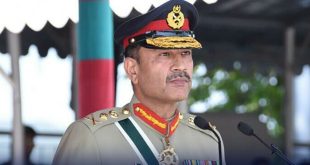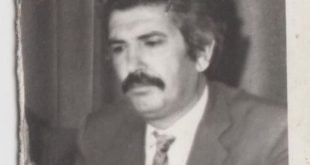By Afrasiab Khattak-The pro establishment tv anchors and the so called defense analysts disparagingly comment on the “oppositional” attitude of PML (n) government. They ridicule it for making demands like a party sitting in opposition. But with the three years plus old creeping coup having entered quite an advanced stage, the PML (n) government seems to have lost control over most of the commanding heights in the state system. For example the Supreme Court has religiously followed the tone set by the military dominated Joint Investigation Team (JIT) in the so called Panama Papers case and has ousted Nawaz Sharif from Prime Ministership even before conducting a trial on charges of corruption. The Supreme Court not only failed to use the review process as an opportunity for redressing its initial blunder but it also used language in its order which wasn’t particularly judicial and which is normally used by staunch political opponents. If one juxtaposes the supersonic speed and the vindictive tone of the judicial process against Nawaz Sharif and his family with the mild and benign “accountability” of Imran Khan and Jehangir Tareen one can clearly identify the party in real opposition. Again the so called ruling PML (n) had to make public demands for the recovery of its members picked up by intelligence agencies during the recent by-election in Lahore. It goes without saying that the political government couldn’t implement its executive order to release activists belonging to the ruling party.
Interestingly these are troubles typically faced by the former ruling parties after the coup. But the ingenuity of the 21st century coup is that a theoretically ruling political party has to grapple with these problems. That’s not all. The involvement of sensitive state institutions in political engineering for tying the loose ends to bring in a “manageable” parliament is an open secret. The recent developments in Karachi have exposed behind the screen maneuvers in this regard.
Establishing a government of technocrats, accountable only to the security establishment, is an old dream. It’s still there on the agenda. But if it isn’t achievable at the moment the next best thing would be the dissolution of assemblies before the Senate elections for stopping PML (n) from gaining majority in the upper house. This is being done by choreographing certain parliamentary maneuvers and by orchestrating a sit-in by religious fanatics. Now the strategy of using aggressive sit-ins in Islamabad has been there since 2014 but the latest sit in by Sunni Barelvi fanatics is the most diabolical one for many reasons. Apparently, Imran Khan and TuQ who are notorious for staging scripted sit-ins in the capital, aren’t taking part in it. But the religious zealots are using the sharpest edge of the weaponized religion perfected by state sponsored jihadists over the last few years. The putschists who taunt the government over its inaction fully know the diabolical nature of the conspiracy. It will be more than repetition of the events of Lal Masjid (red mosque). With a few dead bodies in this particular month of the Islamic calendar in the name of the cause that they claim to espouse, the fanatics can not only trigger large scale sociopolitical disruption but they can also threaten the lives of government leaders. After all Salman Taseer, the former Governor of Punjab, was killed by a similar vicious propaganda campaign launched by religious fanatics. The participants of the current sit in shouldn’t be seen in isolation from the jihadist core of the country. This is a tale that has been wagging the dog for quite some time now. Where will it take this country is difficult to predict but it definitely wouldn’t be a desirable destination.
The operation for regime change got complicated because former Prime Minister Nawaz Sharif refused to accept the putsch as a fait accompli and challenged it by mass mobilisation in central Punjab. Maryam Nawaz, the heir apparent of Nawaz Sharif and a rising star of Pakistani politics, gave clarity to resistance against the game plan of establishment. Any further mass mobilisation can give edge to PML (n). Opposition political parties in the meanwhile are in disarray. They aren’t united and they don’t have a coherent political strategy. PPP didn’t earn brownie points by withdrawing the bill for an across the board accountability. Ultimately all the democratic political forces could have rallied around the piece of legislation that was aimed at bringing judges and generals along with political and business elites into the net of accountability. Unfortunately Pakistani political parties tend to settle political score like fighting in tribal feuds. By referring to the bad conduct of their political opponents in the past they try to justify their current political misconduct. Consequently they aren’t able to break the vicious cycle of putschist politics. State intervention in political engineering leads to fragmentation of political parties which may be desirable for the ruling establishment but it doesn’t augur well for future of the federation. Concentration of power struggle in Punjab is sidelining the vital issues of the smaller provinces deepening their sense of deprivation.
Political instability in Pakistan can be disastrous at a point of time when things are heating up in South and West Asia. Negotiations about peaceful settlement of the conflict around Afghanistan seem to have entered a dead end. Afghan Taliban have reappeared on Pakistani side of the Durand Line after a while. Some analysts see it part of their winter pause but others see more ominous signs in it. The growing confrontation between KSA-Iran confrontation, reinforced by US backing for KSA, can have catastrophic consequences for situation in Balochistan. Pakistan-India standoff persists and no effort for defusing it is visible. How can Pakistani policies to meet the aforementioned challenges be effective without political ownership at home? Political parties need to start a dialogue for a new Charter of Democracy that should enunciate a package of reforms and a package of broad national policies. Agreement of political parties over a minimum program is a pre requisite for bringing political stability.
The writer is a retired Senator and an analyst of regional affairs.
 Afghanistan Times
Afghanistan Times




